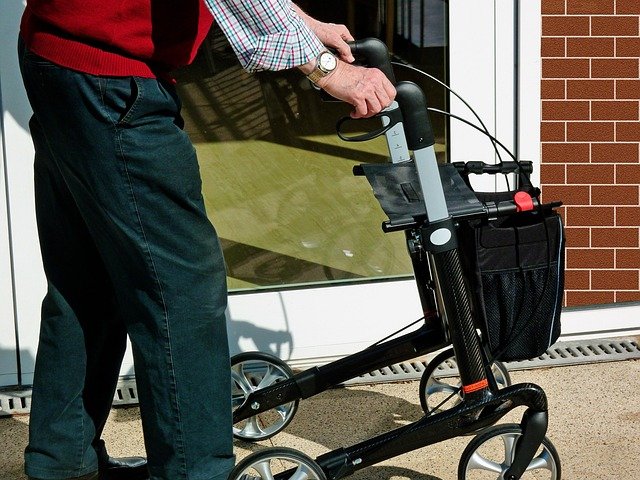Will Medicare Pay for a Mobility Scooter?
For many seniors and people with disabilities, mobility scooters provide independence and a better quality of life. The cost, however, can be significant, raising questions about insurance coverage. Medicare may cover a portion of the expense if certain medical and eligibility criteria are met. Understanding the requirements is key to determining whether a mobility scooter will be an affordable and accessible option through Medicare benefits.

Understanding Medicare Coverage for Mobility Scooters
Medicare Part B covers durable medical equipment, which can include mobility scooters classified as power-operated vehicles. However, coverage is not automatic and requires meeting strict medical necessity criteria. Medicare typically covers 80% of the approved amount after you meet your Part B deductible, leaving you responsible for the remaining 20% plus any amount above Medicare’s approved cost.
The Centers for Medicare & Medicaid Services requires that mobility scooters be prescribed by a doctor and deemed medically necessary for use primarily inside the home. This means the scooter must help you perform daily activities within your residence, even though you may also use it outside your home.
Criteria for Medicare Coverage
Medicare has established specific criteria that must be met for mobility scooter coverage. You must have a mobility limitation that significantly impairs your ability to participate in daily living activities within your home. Your doctor must determine that a mobility scooter is medically necessary and that you have the mental and physical capabilities to operate it safely.
Additionally, you must demonstrate that a cane, walker, or manual wheelchair cannot adequately meet your mobility needs. Your condition must be expected to last at least three months, and you must be able to safely transfer into and out of the scooter. A face-to-face examination with your doctor is required, and this examination must occur within six months before ordering the scooter.
The Application Process and Timeline
The application process begins with a comprehensive evaluation by your healthcare provider. Your doctor must conduct a face-to-face examination and create detailed documentation explaining why a mobility scooter is medically necessary. This documentation becomes part of your medical record and supports your Medicare claim.
After your doctor prescribes the mobility scooter, you must work with a Medicare-approved supplier who will submit the claim to Medicare on your behalf. The supplier must be enrolled in Medicare and meet specific accreditation requirements. Medicare typically processes claims within 30 days, though complex cases may take longer. If Medicare denies your initial claim, you have the right to appeal the decision through a structured appeals process.
Available Mobility Scooter Options
Medicare covers different types of mobility scooters depending on your specific medical needs and living situation. Three-wheel scooters offer better maneuverability in tight spaces and are often suitable for indoor use and smooth outdoor surfaces. Four-wheel scooters provide greater stability and are better for outdoor use on various terrains.
Medicare may also cover heavy-duty scooters for individuals who exceed standard weight limits or need enhanced durability. The specific type of scooter covered depends on your doctor’s prescription and your demonstrated medical needs. Medicare generally covers basic models that meet medical necessity requirements, and you may pay additional costs for upgraded features or premium models.
| Scooter Type | Typical Provider | Cost Range | Key Features |
|---|---|---|---|
| 3-Wheel Basic | Pride Mobility | $1,200-$2,500 | Compact, indoor/outdoor use |
| 4-Wheel Standard | Golden Technologies | $1,500-$3,000 | Enhanced stability, longer range |
| Heavy-Duty | Drive Medical | $2,000-$4,500 | Higher weight capacity, durability |
| Travel Scooter | Invacare | $800-$2,000 | Portable, lightweight design |
Prices, rates, or cost estimates mentioned in this article are based on the latest available information but may change over time. Independent research is advised before making financial decisions.
Learn More About Medicare Mobility Scooters
Working with healthcare providers and Medicare-approved suppliers helps ensure you receive accurate information about coverage options and requirements. Many suppliers offer assistance with Medicare paperwork and can help navigate the approval process. Some suppliers also provide rental options while waiting for Medicare approval or during the appeals process if your initial claim is denied.
Medicare Advantage plans may offer different coverage options for mobility scooters, potentially including additional benefits or reduced out-of-pocket costs. Contact your plan directly to understand your specific coverage details, as benefits can vary significantly between different Medicare Advantage providers.
Medicare coverage for mobility scooters requires careful attention to medical necessity criteria, proper documentation, and working with approved suppliers. While the process can seem complex, understanding the requirements and working closely with your healthcare provider increases your chances of successful coverage. Remember that Medicare typically covers medically necessary equipment, and meeting all criteria is essential for approval. Consider consulting with your doctor and a Medicare-approved supplier to determine whether you qualify for coverage and to understand your potential out-of-pocket costs.
This article is for informational purposes only and should not be considered medical advice. Please consult a qualified healthcare professional for personalized guidance and treatment.




